
To wrap up the Tom’s Guide Awards for 2023, we’re recognizing the very best innovations, brands and products of the year with our annual Hero Awards.
The winners of the Hero Awards stood out to our team for changing the course of tech advancements, doubling down on diversity, demonstrating exemplary sustainability efforts and going the extra mile for users. In many more ways than one, all of the honorees make an irrefutable impact.
For this year’s Hero Awards, we spoke with the winners and analysts about what makes all of these devices, companies and services need-movers. Join us in celebrating their achievements by checking out our entire list of Hero Award recipients below.
Best New Product of 2023
Best New Product of 2023: LG M3 Wireless OLED
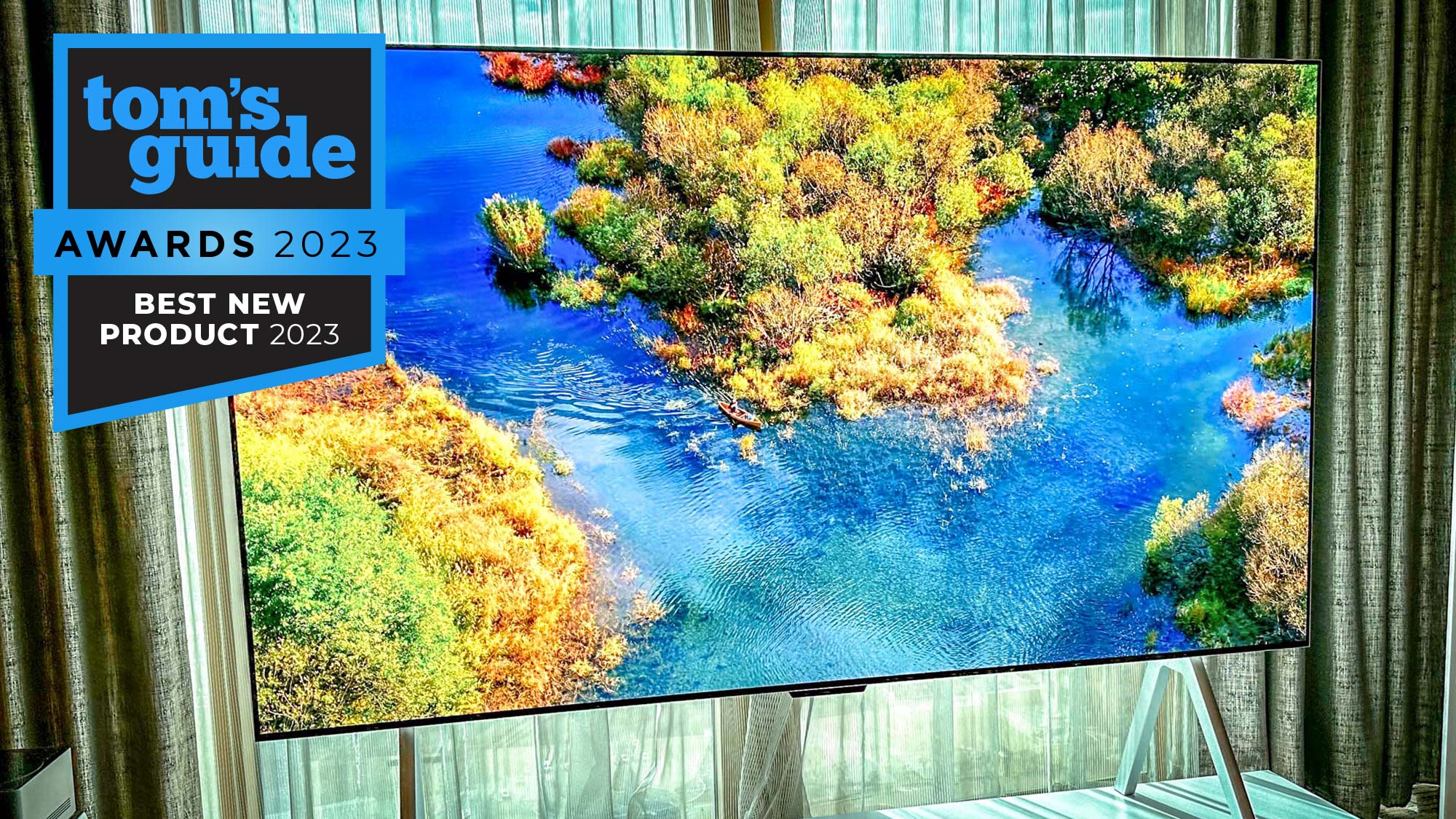
TV testing has been at the core pillar of Tom’s Guide’s expertise for a long time, so it’s not often we see a new TV that blows us away. That’s why the LG M3 Wireless OLED TV, which we first demoed at CES 2023, stands out as the best new product of the past year.
“Over the past 10 years, LG has led the OLED TV market delivering a range of cutting-edge firsts and unique TV experiences,” said David Park, Head of Home Electronics Customer Value Enablement, LG Electronics USA. “Our M3 delivers the same stunning OLED picture quality with the added flexibility of wireless connectivity in three sizes.”
The M3 experience is powered by LG’s proprietary Zero Connect Wireless AV box. The box uses speedy wireless technology to beam content to the TV itself, eliminating the need for navigating ports and cables on the back of the TV. As a result, the M3 looks absolutely immaculate in a living room without compromising LG’s OLED performance prowess.
According to LG, the box can be placed up to 30 feet away from the TV without any signal degradation, as long as it has direct line-of-sight to the screen. M3 also supports Dolby Atmos and Dolby Vision over the wireless connection and supports 4K/120 with HDR — the same specs as LG’s top-rated, non-wireless OLED TVs.
Innovation Award
Innovation Award: Apple Vision Pro
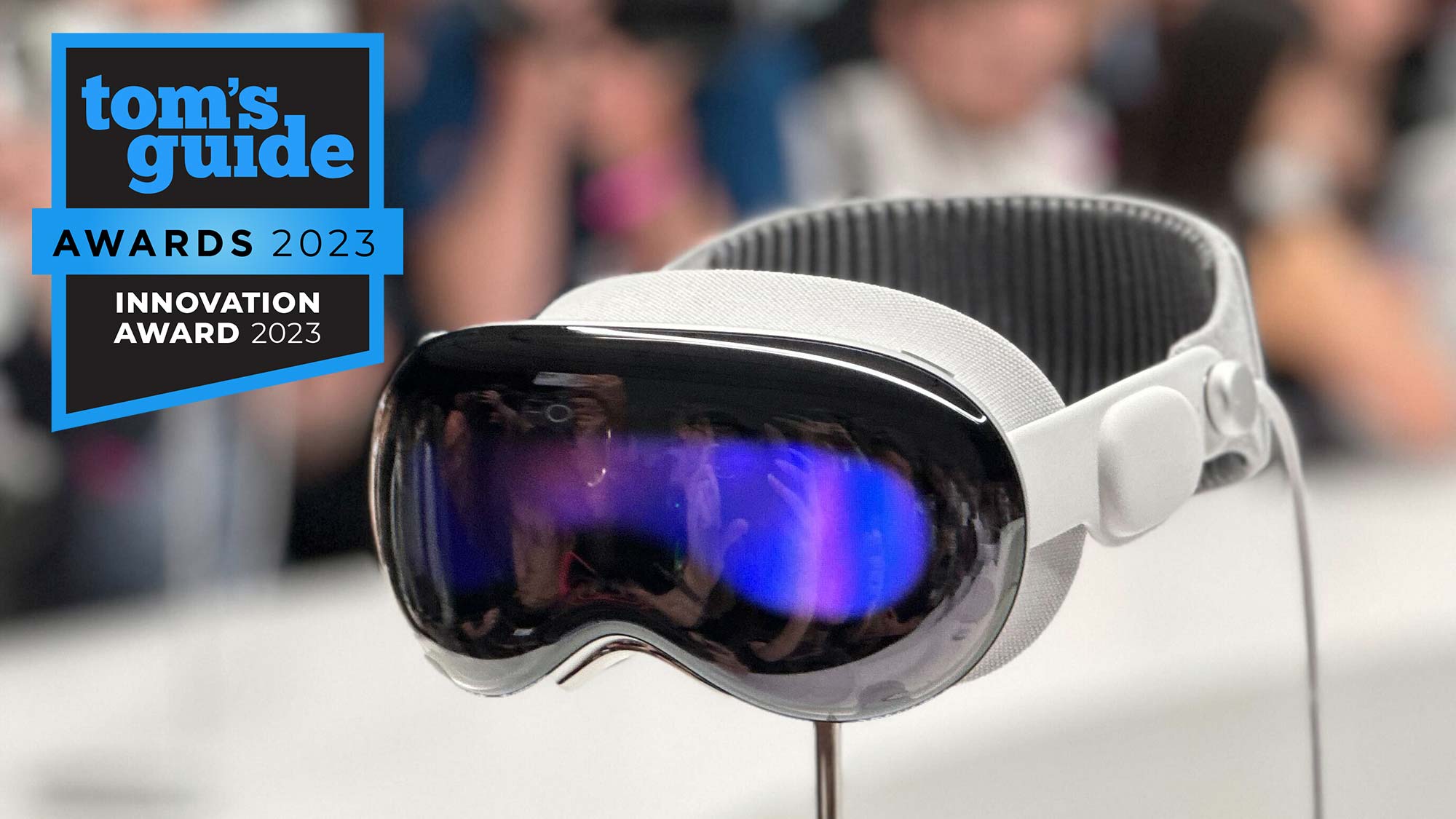
It’s not an understatement to say that the Apple Vision Pro is the most important new product for Apple in a decade. This isn’t just a whole new category for Apple — spatial computing — the Vision Pro is attempting to leap ahead of the best VR headsets like the Meta Quest Pro and PSVR 2.
What makes the Vision Pro stand out is its sheer power, thanks to its M2 chip and dedicated R1 chip designed for real-time processing. The interface is a true breakthrough, which uses eye tracking combined with hand controls to navigate the intuitive VisionOS.
“New computing paradigms require new interaction models,” said Avi Greengart, founder and lead analyst for Techsponential. “Apple’s eye tracking and gestures system on the Vision Pro is exceptionally refined: it takes seconds to learn; it leaves your hands free; and it provides developers with a flexible, precise, and natural-feeling way to manipulate things in 3D space.”
I had a chance to demo the Apple Vision Pro, and the way it delivers a real-time video passthrough of what you’re seeing is impressive. From there, other experiences are layered on top, from watching 3D movies that feel more immersive than the theater to having FaceTime calls with multiple people while you collaborate on a document in real time.
You can capture 3D photos and videos as well, which may look awkward while you’re wearing the headset but it delivers jaw-dropping results with real depth. I was also blown away when I tried the Encounter Dinosaurs app and a butterfly landed on my finger. At $3,500, the Vision Pro is super expensive, but this headset feels like it's laying the groundwork for the next era of entertainment, computing and gaming all in one device.
“The Apple Vision Pro feels more like the original iPhone: resetting the bar for spatial computing experiences at a high level, and giving Apple a platform to iterate on and developers to target,” said Greengart.
Best Company of 2023
Best Company of 2023: Oura

It’s been a big year for Oura, the wellness company behind the increasingly-popular Oura Ring. The Oura Ring is a discreet fitness tracker that does much more than tell you how many steps you’ve taken and calories you’ve burned. With sophisticated sleep-tracking metrics and recovery guidance, Oura takes a truly holistic approach to helping you understand your health.
Oura demonstrated continued ambition by launching several major partnerships and integrations in the past year. Think: Equinox, Therabody, Strava, Natural Cycles and Peloton. We especially appreciated the release of Apple Watch complications and the nationwide retail partnership with Best Buy, which lets you get sized for an Oura Ring in-store.
Still, that’s not all: the company also came out with a new ring (the Oura Horizon) and introduced new features, including SpO2 sensing and better sleep-tracking, so you can get an even deeper look at your overall health.
Of all the fitness and health companies we cover here at Tom’s Guide, perhaps none have rolled out as many new ways for users to benefit and grow the ways they can enjoy a single product at Oura’s impressive pace. The company shows no signs of slowing down, either.
“Delivering accurate, personalized health information, developing features and integrations that serve our community, and committing to forward-looking research is our top priority,” said Tom Hale, Oura’s CEO. “Looking ahead, we’re doubling down on our health research investment and experimenting with innovative tools and features that we are confident will delight and benefit our members.”
Diversity in Tech Award
Diversity in Tech Award: Motorola Digital Inclusion of Endangered Indigenous Languages

During the past year, Motorola made major advancements in its Digital Inclusion of Endangered Indigenous Languages in partnership with UNESCO, growing the number of supported indigenous languages from around the world available on Motorola smartphones.
"There are approximately 7,000 languages in the world and close to half of them are endangered,” said Janine Oliveira, Head of Globalization, Motorola Mobility. “When a language disappears, so does the cultural diversity and heritage associated with it. We embarked on our Digital Inclusion of Endangered Indigenous Languages initiative a few years ago when we recognized a big gap in the representation of endangered indigenous languages on smartphone user interfaces.”
By digitally including endangered indigenous languages, Motorola makes admirable strides in its mission to promote and represent diverse populations through its devices. At this point in time, Nheengatu, Kaingang, Cherokee, Maori, Kangri and Kuvi are the global indigenous languages supported on Motorola phones. For Kangri and Kuvi specifically, Motorola became the first OEM to help preserve endangered languages from regions in India.
The languages materialize in varying degrees, from character keyboards to fully localized UIs. We even had the chance to see some of the implementation in action on the Motorola Razr+, finding that the language integrations run deep in the user experience.
"At Motorola, our goal is to provide technology that builds a smarter, more inclusive future for both our colleagues and communities,” said Francois LaFlamme, Global Chief Marketing Officer, Motorola Mobility. “We believe that by embracing diversity both within our organization and in the broader marketplace, we can use our global scale to make a big impact — and our indigenous languages revitalization initiative is a great example of this.”
Sustainability in Tech Award
Sustainability in Tech Award: Belkin
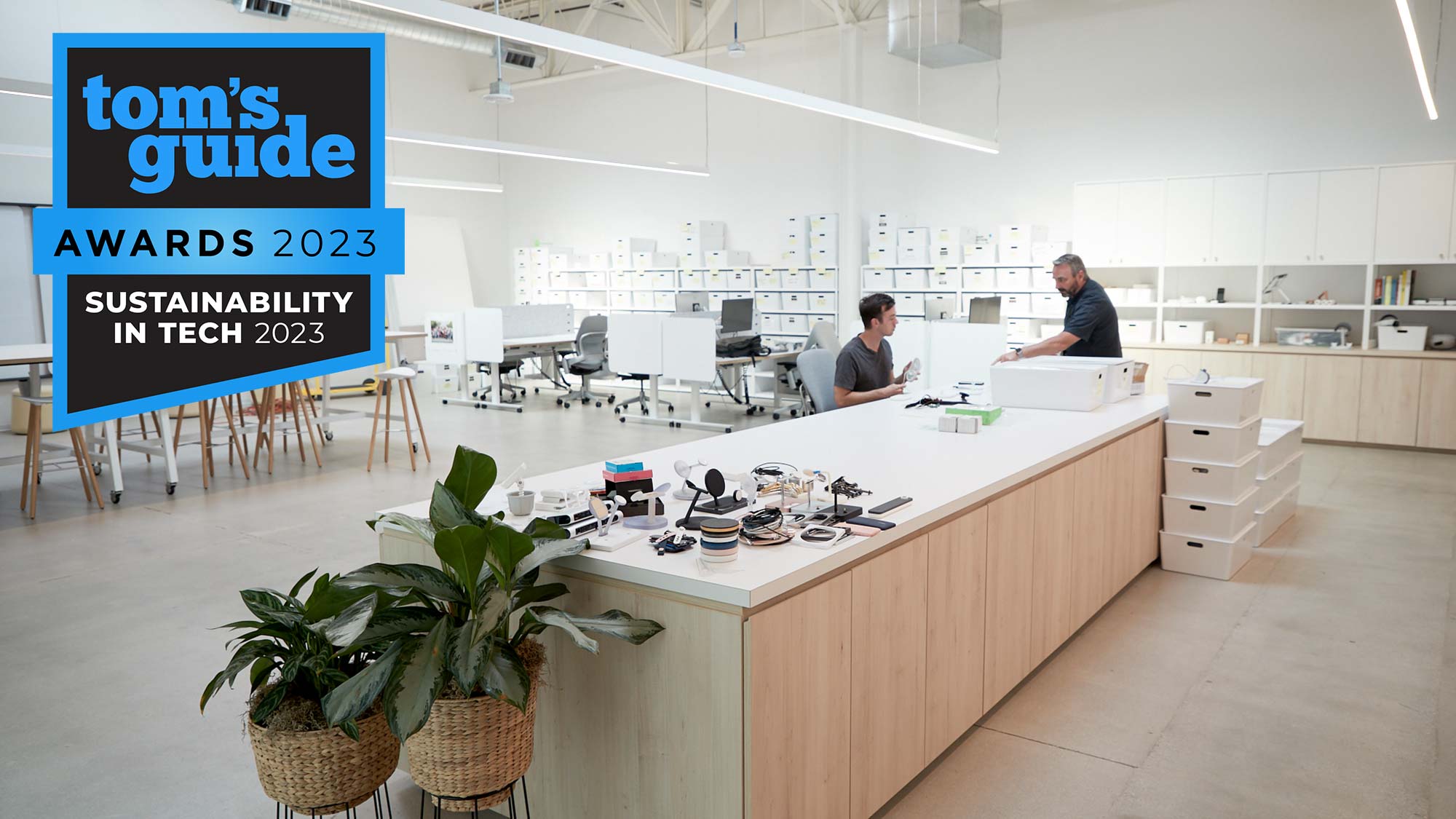
In 2023, Belkin began an ambitious transition to using approximately 75% post-consumer recycled (PCR) plastics for some of the brand’s most popular charging products. Rather than repurposing the post-industrial recycled (PIR) plastics created from production lines, Belkin’s materials are recovered from the discarded plastics from things like toys and electronics.
“Belkin truly cares about our planet and our communities, because ultimately, the products we make affect them,” said Jen Wei, Vice President of Communications at Belkin. “We started our initiatives nearly two decades ago by addressing carbon neutrality in our global operations and removing plastic where possible. Responsibly transitioning from virgin plastics to PCR in this next phase is a meticulous process that requires years of R&D to maintain the Belkin promise of quality and design excellence.”
When we visited Belkin’s Global HQ, we looked behind the curtains of some of the teams and processes dedicated to the company’s environmental impact. For example, we saw some of the testing that went into Belkin’s adoption of fully plastic-free packaging.
From what we’ve heard, achieving its latest sustainability efforts wasn’t an easy task. Recovering PCR plastics is often more difficult and expensive compared to sourcing PIR plastics, plus the new PCR plastic-made products had to undergo extensive durability testing. All the while, Belkin absorbed the cost, instead of passing it on to its customers.
“Belkin is on a lifelong journey to find more responsible ways to build products, Wei said. “Being part of a company that is unafraid to make the difficult, but right choices, is incredibly inspiring.”
Best Product Design of 2023
Best Product Design of 2023: Lenovo Yoga Book 9i
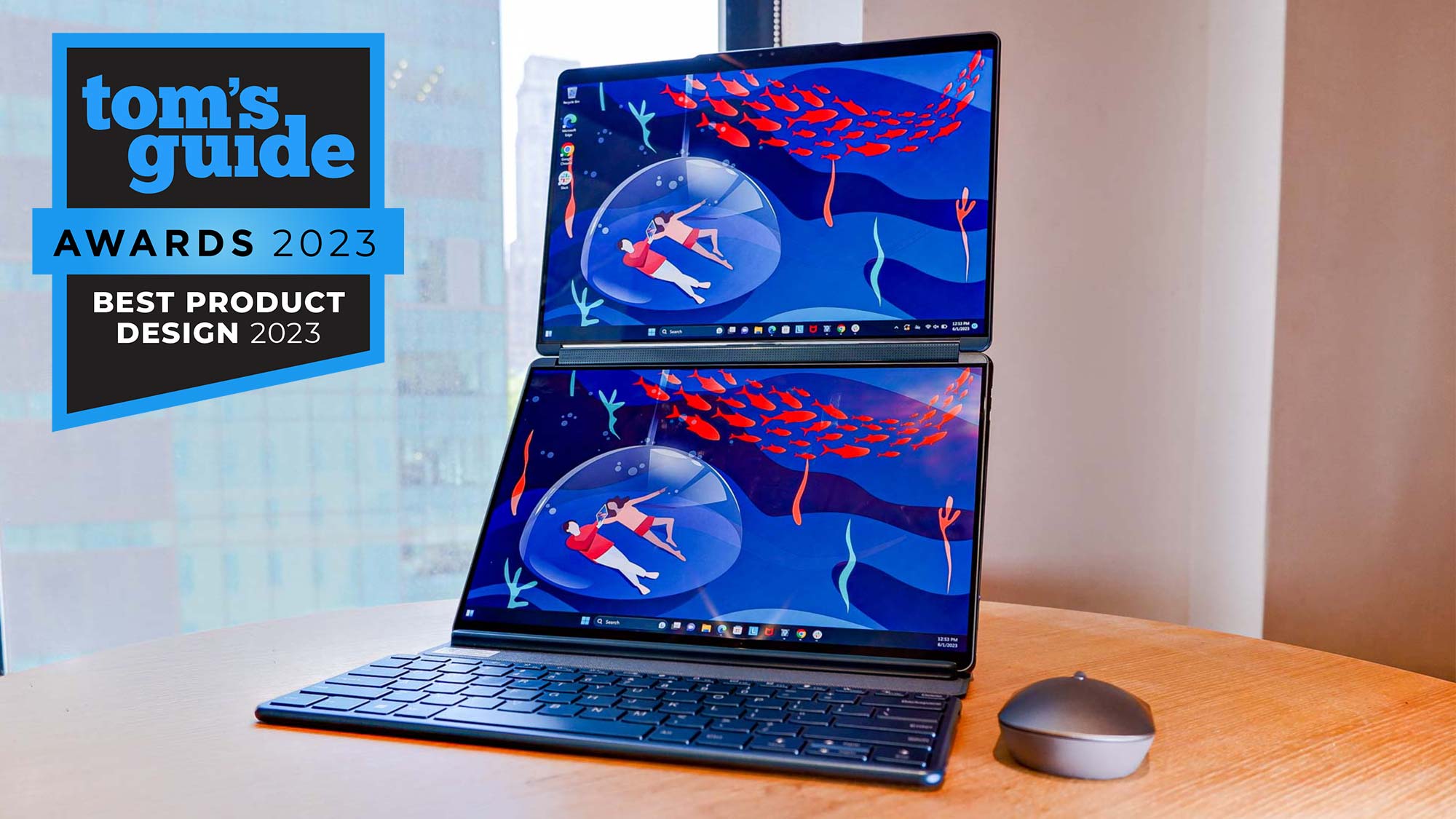
When it came time to decide which product had the best design this year, the Lenovo Yoga Book 9i stood out as the obvious choice. With dual 13.3-inch 2K OLED touchscreens, this laptop completely transformed the way we think about using computers.
"Lenovo Yoga has always been about empowering consumers and creators to achieve limitless possibilities through bold, intuitive, and powerful devices,” said Brian Leonard, VP of Design, Lenovo PCs and Smart Devices. “With this in mind, we designed the dual screens on the Lenovo Yoga Book 9i to function seamlessly both as separate displays as well as in concert, unlocking unique new ways for users to do more."
The Yoga Book 9i’s included kickstand and Bluetooth accessories gives you the flexibility to find the way the device works best for you. You can stack the two screens on top of each other, or stand them up side-by-side when you need lots of screen real estate. You could even hold the laptop in your lap like a book, if you’d like.
With a starting price of $2,099, this isn't a cheap laptop, but the endless ways in which you can use its two screens might make it one of the most impressive products we’ve ever tested. Thanks to its 13th Gen Intel Core i7 CPU and 16GB of RAM it can keep up with your performance needs. And weighing just over 3 pounds, it won't drag you down while you're running around, too.
“Today’s consumers lead multi-faceted lives, relying even more intrinsically on the technology that enables them to design, develop, and create their own content,” said Jun OuYang, Vice President of the Consumer Segment, Intelligent Devices Group, Lenovo. “We have designed the new Yoga portfolio to empower the consumers of today to achieve their goals of tomorrow.”
Best Value of 2023
Best Value of 2023: Google Pixel 7a
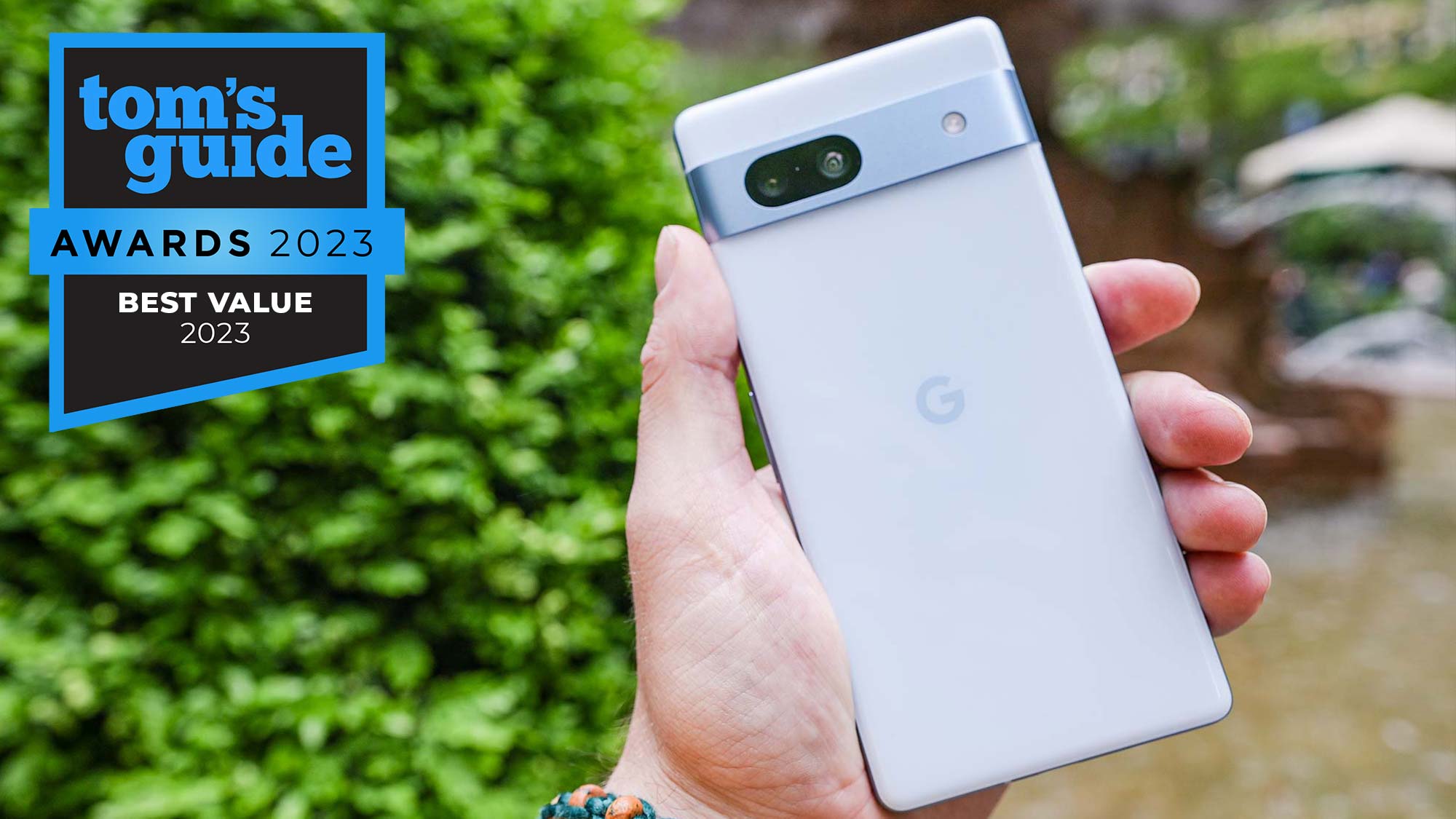
There are many excellent smartphones that cost $1,000 or more, but the Google Pixel 7a proves that a handset doesn’t need a high price tag to bring the latest-gen features and other core experiences to users.
“Our goal with the Pixel A-series phones is to deliver all the helpfulness of Google to as many people as possible, at an accessible price,” said Justin Savich, Senior Product Manager, Pixel. “We built Pixel 7a with Google Tensor G2, our flagship processor, and Titan M2, our dedicated security chip, making it faster, more efficient, and more secure than ever.”
In our Pixel 7a review, the device’s value materialized in almost every aspect of testing. It has many markings of a flagship device, without a flagship price. For those who aren’t looking to spend over $500, the 7a’s zippy refresh rate, wireless charging support, and excellent cameras mean you aren’t compromising.
It’s safe to say we think the Pixel 7a is a phone worth buying, and a great example for other companies to follow for instilling true value in their budget-friendly products.
“Pixel 7a brings many of the must-have features on our other devices to an A-series Pixel for the first time — like wireless charging, 8GB of RAM, a 90Hz Smooth Display, and Face Unlock,” Savich said. “We’ve also completely upgraded the camera system, with all-new sensors, AI-powered features like Long Exposure, and all the photography experiences users have come to know and love, like Magic Eraser and Photo Unblur.”







